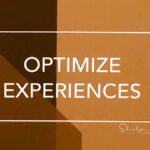
One of the more popular articles on HR Bartender is titled “Leadership Power: The 7 Types and How to Use Them”. Every one of us has power and it’s important to recognize the different types of power we possess, how much of each type we have, and how to use them in a positive way.
The reason I’m mentioning this older article is because of the seventh type of power listed, which is called informational power. We all know someone who appears to have access to valuable information. That’s an example of informational power. But I’ll add something to this definition. Given the amount of information available to us on the internet, individuals have power when they can effectively sift through all the noise and find correct, valuable, relevant information.
This is something I believe we need to take very seriously. I’ve mentioned before that we need to become more media literate and that media literacy is becoming a business competency. I few months ago, I watched a 12-session YouTube program from CrashCourse on media literacy. Well, they have a new one out on navigating digital information. Basically, the course is focused on how to evaluate whether the information we’re reading is legit.
The course offers three questions to consider when consuming digital information. The idea being that we should ask ourselves these three questions to determine if we’re comfortable with the information. And we should do this before we share the information via our social channels.
- Who is sharing this information? This course introduced a concept to me called lateral reading. To learn more about a website or author, leave their website. Find out the author’s professional experience, educational background, and the process they used to present information. Did they go to an event? Read a book? Talk to experts? By reading laterally to other websites, we can learn more about the person and their credentials.
- Why are they sharing it? Regular readers know that I often use the dictionary to help myself solve my information gaps. This course reminded me that there’s a difference between skepticism and cynicism. Skepticism is to doubt the truth of something. Cynicism is an inclination that people are motivated purely by self-interest. It’s okay to be skeptical and look to understand why someone is sharing information. Are they being transparent about it? That might lead to some cynicism.
- What do others say about the information? When we read information, it’s important to understand if it’s fact or opinion. And are there any sources of evidence? We also want to remember that not all evidence is created equal, but the absence of evidence could be suspicious. Oh, and when we refer to evidence, keep in mind that all evidence might not be data. Images could be a powerful form of evidence.
As I think about these three questions and the course in general, the big takeaway for me was that navigating digital information well involves constantly being in touch with our biases. When we read things that seem too good to be true then maybe we need to take a few extra steps to confirm the information. Or when our favorite news source says something, double check with another source before sharing. It doesn’t take a lot of time to reconfirm. And if no one else is talking about it…maybe we need to wait a while before sharing. Because maybe, just maybe, it’s not correct.
I’d like to think that I don’t need to explain why being able to navigate digital information is so important. We’re dealing with a pandemic. During an election year. In the middle of a global recession. Consuming correct, valuable, relevant information is essential to our personal and professional lives. Hopefully, these three questions will help us be better informed.
14






